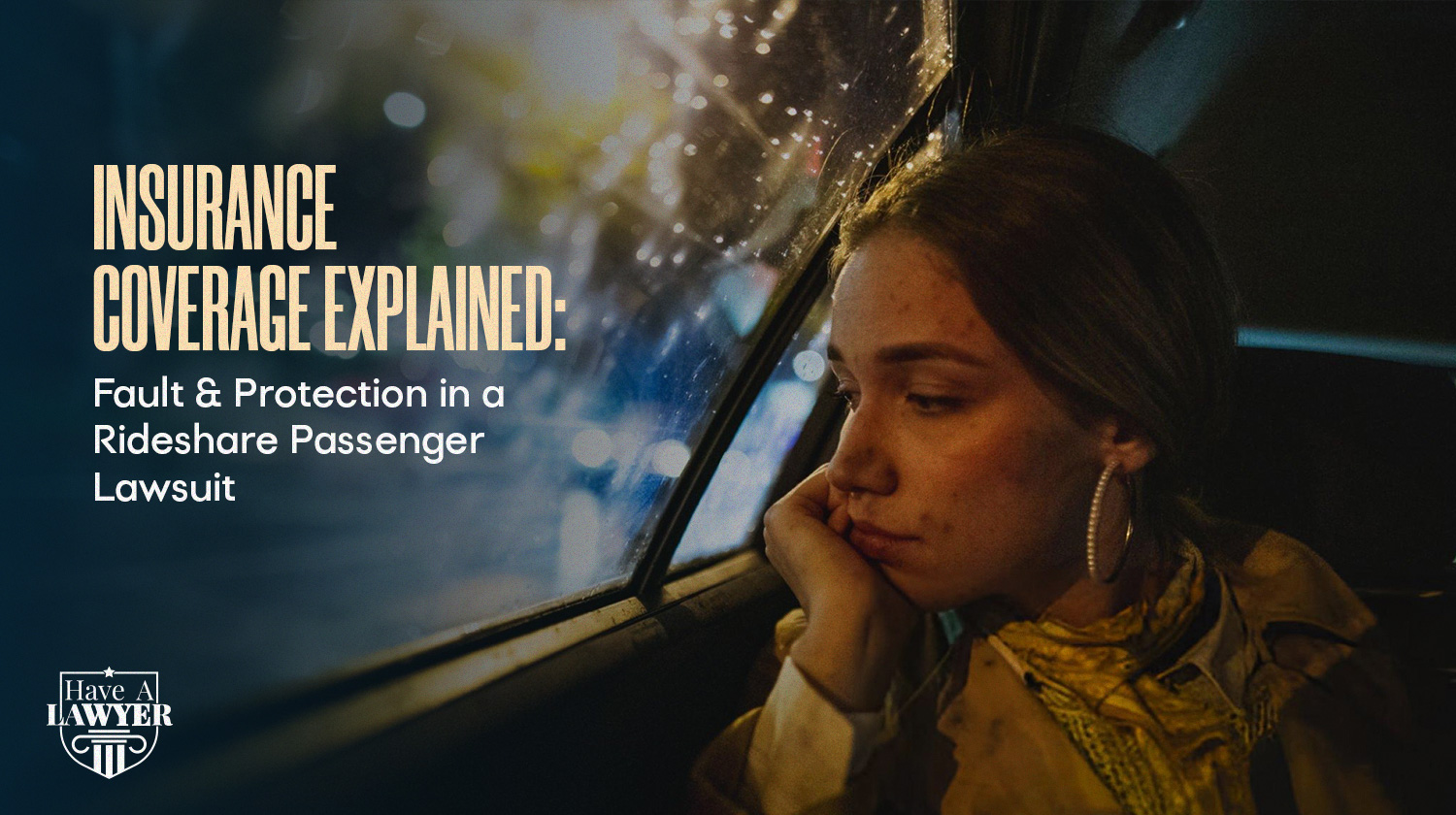Transportation in today’s time has become quite convenient and easy. Ridesharing companies like Uber, Lyft, and Ola have changed the current scenario of transport by providing quick and efficient services. Like everything in the world, this convenience has a price to pay when it comes to accidents that follow legal complexities. After accidents, passengers are often left with questions like “Whom do I hold responsible for my injuries? Who shall cover the expenses for my losses? Is the driver’s insurance applicable here?”
To get more clarity on such issues, it is important to understand the role of insurance coverage in a rideshare passenger lawsuit.In a ridesharing accident, there are layers involved, that is, the involvement of multiple parties and complicated insurance processes to be gone through. After which, the case matures into a mass tort case, and several people who have used the ridesharing services and have faced injuries in accidents come together to file a rideshare passenger lawsuit.
In this blog, we shall understand how insurance coverage works, how the person at fault is decided, and what protection benefits the passengers shall have under the law.
Determining the one at fault in a rideshare passenger lawsuit
In case of personal injuries, liability is the core element. And especially when it comes to accidents, the factor that determines the clear and complete fault of a party involved in the accident is tricky and complicated, as multiple parties share responsibility.
1. The Rideshare Driver
Irresponsible and negligent behavior of the ridesharing driver is at fault. If they are caught speeding, using a phone while driving, or driving under the influence of drugs and alcohol, they can definitely be held accountable. For instance, if a driver exceeds the speeding limit and collides with another vehicle on the way, it is safe to say the fault largely resides with them.2. Another driver on the road
In cases where the other driver is the cause of the accident, the insurance company of that driver is to be declared liable, sparing the rideshare driver from the blame.3. The Ridesharing company
Often, big ridesharing companies like Uber and Lyft try to limit their share of liability. Although their commercial insurance policies change when passengers are onboard. For instance, if the jury proves the negligence of the company in hiring the driver without a proper background check, they can be sued. Therefore, one needs to be vigilant to analyze all these factors in alignment with different insurance policies. (personal, commercial, or third-party)Tiers of Insurance Coverage in Rideshare Passenger Lawsuits
Rideshare insurance changes depending on what the driver is doing on the app at the time of the accident. Let’s break it down so passengers can clearly understand.
1. Driver Offline (App is Closed)
The ridesharing company bears no liability here; only the personal auto insurance of the driver applies here.2. Driver Online, But No Ride Accepted
If the driver is online, waiting for a ride, but no ride is accepted. The rideshare company offers limited insurance coverage, covering up to $50,000 per person and $100,000 per accident. This is only applicable if the driver’s personal insurance does not cover the damages.3. Ride Accepted/Passenger is Onboarded
This is the strongest protection phase. If the driver accepts a ride while being online and inside the car, the ridesharing company is liable to pay $1 million. This even covers accidents caused by drivers who do not have personal insurance. This is the most beneficial and safest phase for passengers, as the company provides complete insurance. Compensation that can be claimed by a passenger Ridesharing accidents cause physical injuries, financial losses, and emotional distress. For a person who is involved in a rideshare passenger lawsuit, they are entitled to claim compensation for the following:- Medical expenses
- Lost wages
- Damage to personal property
- Emotional stress
- Long-term rehabilitation
- Wrongful death damages.
Mass Tort Cases
It might so happen that a single ridesharing accident affects multiple passengers, or multiple ridesharing vehicles collide with each other, leading to the formation of mass tort cases. Let us understand mass tort cases It is different from class action lawsuits. Here, unlike class action lawsuits, all the plaintiffs are not taken as one. Here, the individual complaints and claims of the plaintiffs are heard and acted upon with legal processes.Positives of mass tort cases in the case of rideshare lawsuits
- Collective sharing of evidence and legal strategies among the affected passengers.
- Fair distribution of compensation for individual damage claims.
- Compensation was served as per the specific injuries borne by the plaintiffs.
If five passengers were traveling together in a rideshare cab, their individual claims shall be heard and acted upon while being a mass claim tort case in legality.
Downhill of a rideshare passenger lawsuit despite the insurance protection
- The benefit of the doubt is given over who was at fault, which often results in disputes.
- As multiple insurers are involved, the battle over who takes responsibility arises.
- Ridesharing companies often ghost their drivers, distancing themselves from legal consequences.
- Limitations of insurance policies.
A post-guide for passengers to follow after a rideshare accident
Follow the mentioned steps:
- Get medical help as soon as you can.
- Don’t miss out on documenting evidence.
- Inform the ridesharing company through the medium of their application.
- Collect as much important information as you can.
- Gather medical records as future evidence.
- Get legal help.
Conclusion
Ridesharing has revolutionized urban transport, but it has also introduced new layers of legal and insurance complexity. In a rideshare passenger lawsuit, understanding fault allocation, insurance coverage tiers, and compensation options is critical.
When multiple passengers are affected, cases can become mass tort cases, allowing victims to pursue justice while still being compensated individually and collectively.
For passengers, the bottom line is clear: you are not without protection. A trusted and expert team of attorneys like that at Have A Lawyer can help you get justice and seek compensation for the losses you had to bear.


